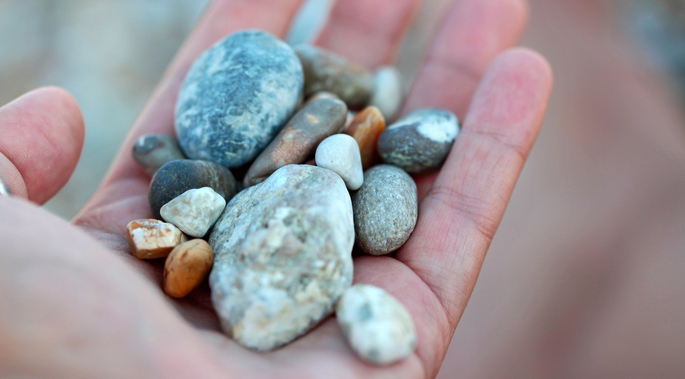“The man who moves a mountain begins by carrying away small stones.” – Confucius
You want big results. Why bother with small stones?

Because they’re simple, microhabits are easy to incorporate into your life — immediately. They don’t require an intimidating learning curve or an unreasonable amount of your time or energy.
Herein lies their biggest power: because they require minimal effort, you’ll do them. And by doing them, you break the cycle of inertia. You gain confidence.
And you’ll see results.
What Is a Microhabit, Exactly?
Creating new habits or routines can be overwhelming — particularly if your plate already feels full (and whose doesn’t?!).
By contrast, microhabits are empowering.
They are an opportunity to prove to yourself, “I can do this!” which turns inertia into momentum.

Because they are fast, easy and bite-sized, microhabits are sustainable on a regular basis (every morning, every evening, once a day, once a week, etc.). Here are some examples:
- Cleaning off the top of your desk before leaving the office
- Meditating for five minutes
- Creating a list before grocery shopping
- Making your bed
- Writing your to-do list for the day
- Reading one professional development article
- Recording one entry in a gratitude journal
- Parking at the spot furthest from the door
- Setting a daily intention
- Silencing your cell phone during dinner
I once had an executive coaching client (we’ll call her “Claudia”), who wanted to quit smoking, and asked for my help.
I told Claudia to put a photo of her 8-year-old daughter inside the plastic sleeve of her package of cigarettes. Every time she went to grab a cigarette, she was to say to her daughter in the photo, “I’m sorry, honey. I won’t make it to your wedding — or to your daughter’s wedding. I choose this cigarette over my health and longevity.”

Microhabits are Like Appetizers
Maybe this isn’t the right time to start working out at the gym five days a week for an hour per day. But maybe it is the right time to commit to a walk around the block during your lunch hour. Starting today. No exceptions.
Instead of thinking “Ugh, this is too big … I have a meeting three afternoons this week … I’ll start next week (which always turns into next month),” you simply say, “Yes.”
Think of microhabits as appetizers. Sometimes, they’re satisfying on their own, allowing you to savor the glory of accomplishment.
In other cases, microhabits create an appetite for more. It’s up to you to decide to morph them into bigger and better endeavors. You might find that you enjoy the walk around the block so much, that it becomes two laps around the block, then three …
The Magic of Microhabits
Meditating for five minutes per day won’t feel transformational on day one, but over time, it will improve your mood state, cognition and memory. Making your bed every morning won’t change your life, but feeling in control over your environment might.
The magic of the microhabit lies in its ability to be a catalyst for change, with profound benefits that become apparent over time.
What matters most isn’t what you do, but how you approach microhabits.
Commitment, discipline and consistency will yield powerful results, no matter how small the behavior.


